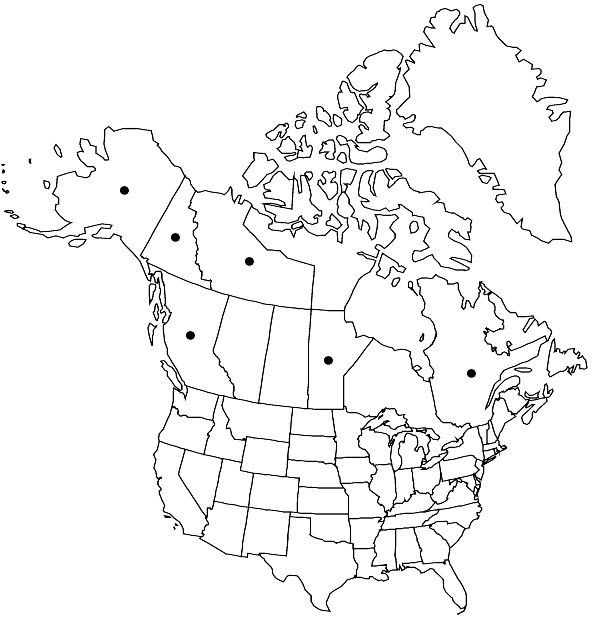Difference between revisions of "Dicranum majus var. orthophyllum"
Bryol. Siles., 71. 1869,.
imported>Volume Importer |
imported>Volume Importer |
||
| Line 45: | Line 45: | ||
|publication year= | |publication year= | ||
|special status= | |special status= | ||
| − | |source xml=https:// | + | |source xml=https://bitbucket.org/aafc-mbb/fna-data-curation/src/2e0870ddd59836b60bcf96646a41e87ea5a5943a/coarse_grained_fna_xml/V27/V27_574.xml |
|genus=Dicranum | |genus=Dicranum | ||
|species=Dicranum majus | |species=Dicranum majus | ||
Latest revision as of 21:27, 5 November 2020
Plants in loose tufts, mostly light green, somewhat dull. Leaves erect-patent, 6–8 mm; margins slightly serrulate distally to almost entire; costa serrulate to nearly smooth distally on abaxial surface, with an interrupted double row of guide cells.
Phenology: Capsules mature spring.
Habitat: Humus, sand, and rock in the tundra
Elevation: 40-1500 m
Distribution

B.C., Man., N.W.T., Que., Yukon, Alaska, Europe.
Discussion
I. A. Worley and Z. Iwatsuki (1970) recorded var. orthophyllum from Alaska. It is an extremely weak Arctic variety that differs from var. majus in only a few minor characters. The plants immediately appear different because of the erect-patent, short leaves instead of the long, falcate-secund leaves of var. majus. More collections are needed from many Arctic localities to better understand var. orthophyllum, which may only be an environmental form.
Selected References
None.